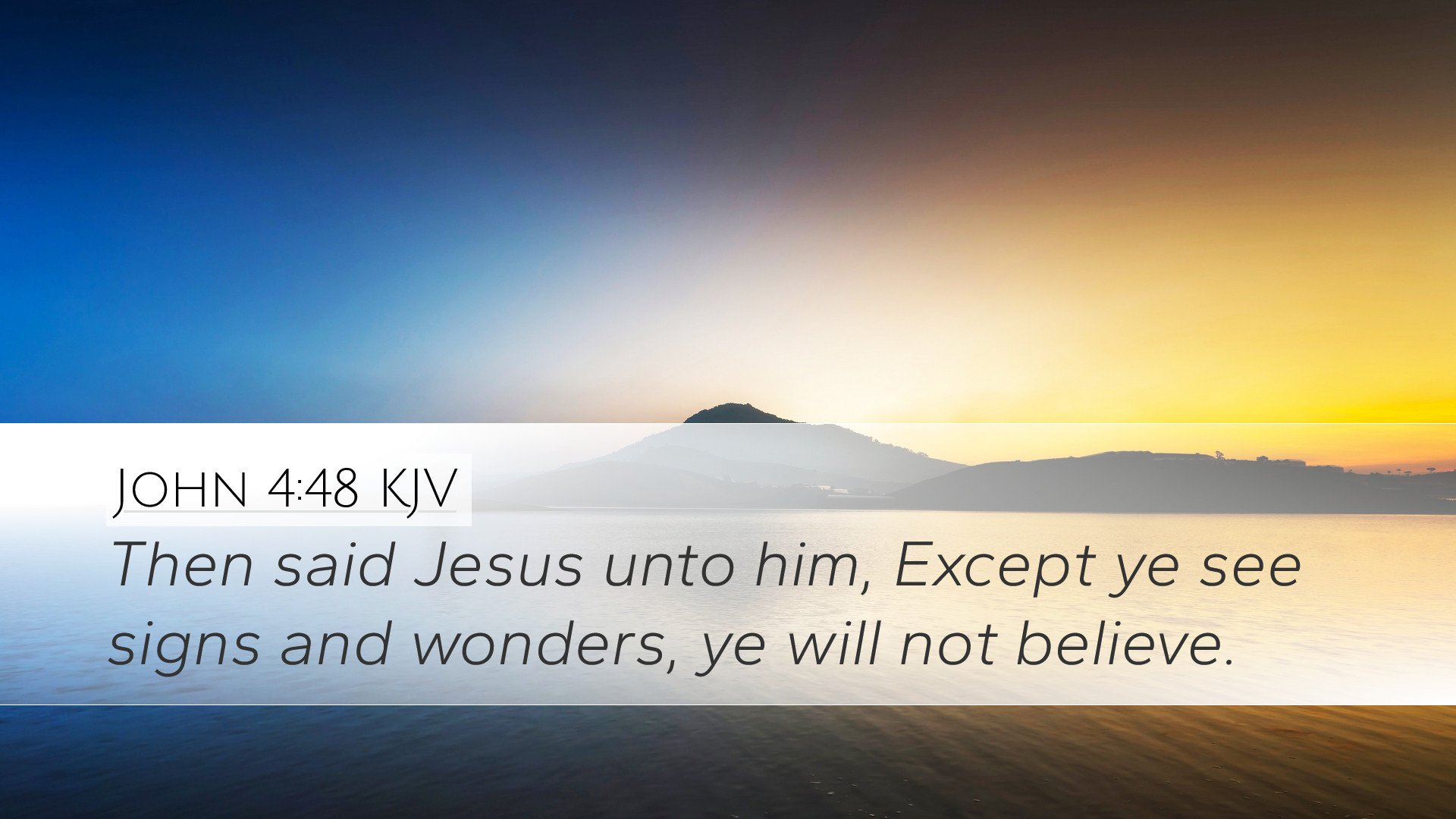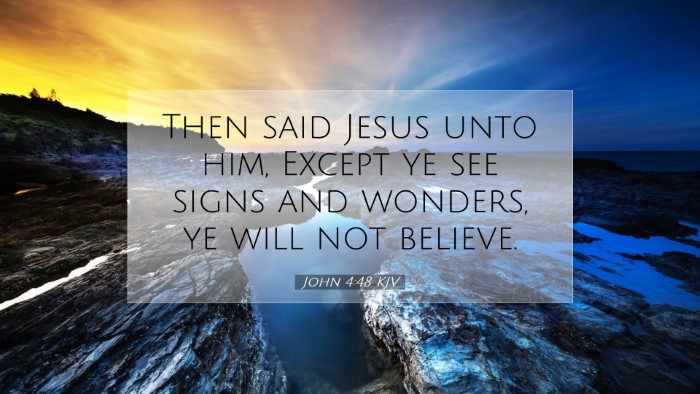John 4:48 Commentary
Verse: "Then said Jesus unto him, Except ye see signs and wonders, ye will not believe." (John 4:48 KJV)
Introduction
This verse occurs within the narrative of Jesus's encounter with a royal official whose son is gravely ill. The official seeks Jesus's intervention, demonstrating a blend of faith and desperation. Christ’s response addresses a deeper issue regarding the nature of faith and reliance on miracles.
Contextual Background
To fully understand John 4:48, one must consider the preceding and following verses within John’s Gospel. Jesus had just performed a miraculous healing in Cana and traveled to Galilee where he faced skepticism.
Historical Setting
- The royal officer likely belonged to Herod’s court, highlighting the reach of Jesus's ministry even into influential circles.
- This encounter unfolds in a region where Jesus had previously turned water into wine, setting the stage for further revelation of His power.
Exegesis
In this passage, Jesus speaks to a wider audience than just the official, addressing the prevalent mindset of the people concerning faith and miracles. Several public domain commentaries shed light on the implications of this verse.
Matthew Henry's Commentary
Matthew Henry emphasizes the rebuke in Jesus's words, illustrating a common human inclination to depend on visible wonders to establish belief. He suggests that true faith must extend beyond mere signs, rooted instead in the recognition of Jesus’s divine authority. Henry notes that while miracles validate faith, they should not be the foundation of it.
Albert Barnes's Notes
Albert Barnes emphasizes that the statement reflects Jesus's view of the people’s superficial faith, which relies heavily on tangible proofs. He argues that Jesus is urging them towards a faith founded on understanding rather than spectacle. Barnes elucidates that such reliance on signs is indicative of a weak faith that often falters unless continually bolstered by wonders.
Adam Clarke's Commentary
Adam Clarke points out that this verse exposes the philosophical struggles of humanity regarding faith. Clarke states that embracing a faith that requires miraculous confirmation often complicates spiritual growth. He articulates that believing without signs leads to a stronger, more resilient faith, urging believers to seek divine relationship rather than merely miraculous encounters.
Theological Implications
John 4:48 raises crucial theological questions regarding the nature of belief and the character of God. These discussions provide rich material for pastoral reflection and teaching.
Faith versus Sight
The apostle emphasizes a powerful biblical theme: the contrast between faith and sight. This principle echoes throughout Scripture, suggesting that God's ways and purposes often transcend human understanding. It encourages believers to trust in the unseen and rely on God’s promises.
The Nature of Miracles
Miracles serve a vital role in the biblical narrative, not only affirming Jesus's divinity but also serving as a means to draw individuals to a deeper faith. However, reliance solely on these acts can lead to a shallow understanding of God’s character and sovereignty.
Application for Today's Believers
Today's believers are invited to consider how their faith is shaped. Are the signs and wonders fostering genuine belief, or are they merely spectacles? This self-reflection can lead to a more profound faith that withstands trials without requiring constant visible affirmations.
Conclusion
In conclusion, John 4:48 serves as a timeless reminder of the nature of faith and belief. It challenges believers to pursue a deeper understanding of God that transcends the need for miraculous signs. Through the insights of esteemed commentators, pastors, students, and theologians are equipped to engage with this passage meaningfully, leading others towards a faith that is grounded in love, relationship, and trust in the divine.


